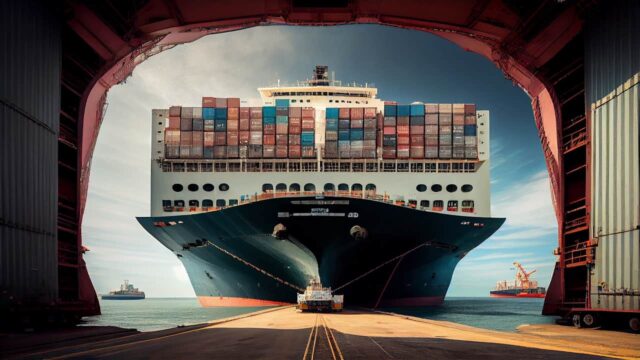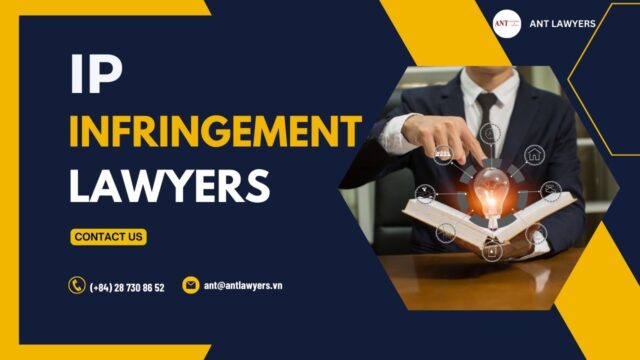The maritime sector is a cornerstone of global trade and commerce, and Vietnam, with its strategic coastline and bustling ports, plays a vital role in this industry. The rapid growth and evolving dynamics of the maritime sector bring about numerous trends and legal challenges. Maritime counsels in Vietnam are essential in navigating these complexities, ensuring compliance with international standards, and fostering sustainable growth. We will delves into 12 crucial insights into the current trends and legal challenges in the maritime sector and highlights how maritime counsels in Vietnam can help businesses and stakeholders effectively address these issues.

Update on Trends, Legal Challenges and How Maritime Counsels in Vietnam Could Help
1. Sustainable Shipping Practices and Regulations
Current Trends
Sustainability has become a key focus in the maritime industry. The push towards eco-friendly shipping practices is driven by international regulations such as the International Maritime Organization’s (IMO) strategy to reduce greenhouse gas (GHG) emissions from ships. Technologies like energy-efficient hull designs, alternative fuels (e.g., LNG, biofuels), and advanced emission control systems are being adopted to meet these regulations.
Legal Challenges
Compliance with stringent environmental regulations poses significant challenges. Shipowners and operators must invest in new technologies and retrofit existing fleets, which requires substantial capital. Additionally, differing regional regulations can complicate compliance efforts.
How Maritime Counsel in Vietnam Can Help
Maritime counsels in Vietnam provide crucial guidance on navigating these complex environmental regulations. They assist with compliance strategies, advise on investments in green technologies, and ensure that shipping practices meet both international and local environmental standards. Their expertise helps mitigate risks associated with non-compliance, such as fines and operational restrictions.
2. Maritime Security and Anti-Piracy Measures
Current Trends
The maritime sector faces ongoing security threats, including piracy, armed robbery, and terrorism. The rise in incidents, particularly in critical shipping routes, necessitates robust security measures.
Legal Challenges
Implementing security measures involves understanding and complying with international and national laws. Issues such as the use of private maritime security companies (PMSCs) and rules of engagement can lead to legal complications.
How Maritime Counsels in Vietnam Can Help
Maritime counsels in Vietnam play a pivotal role in advising on legal protocols for maritime security. They help clients navigate the legalities of employing PMSCs, ensure compliance with rules of engagement, and provide guidance on international maritime security regulations. Their expertise is crucial in drafting security contracts and handling any legal disputes that arise from security incidents.
3. Dispute Resolution in Maritime Contracts
Current Trends
With the increase in maritime activities, disputes arising from charter parties, shipbuilding contracts, and other maritime agreements are becoming more common. Effective dispute resolution mechanisms are essential to maintain smooth operations.
Legal Challenges
Disputes can involve complex legal and technical issues, often requiring specialized knowledge. The choice between litigation, arbitration, and mediation, and the enforcement of arbitral awards, are significant considerations.
How Maritime Counsels in Vietnam Can Help
Maritime counsels in Vietnam offer specialized services in dispute resolution, including arbitration and mediation. They assist in drafting robust contracts with clear dispute resolution clauses, represent clients in arbitration and court proceedings, and facilitate negotiations to resolve disputes amicably. Their expertise ensures that clients can address conflicts efficiently and protect their interests.
4. Maritime Labor Laws and Seafarers’ Rights
Current Trends
The well-being and rights of seafarers are gaining increased attention, with a focus on improving working conditions, wages, and welfare. International conventions like the Maritime Labour Convention (MLC) set standards for seafarer employment.
Legal Challenges
Ensuring compliance with labor laws and international standards can be challenging, particularly in jurisdictions with differing regulations. Addressing issues such as crew abandonment, unpaid wages, and poor working conditions requires a thorough understanding of maritime labor laws.
How Maritime Counsels in Vietnam Can Help
Maritime counsels in Vietnam provide expert advice on maritime labor laws and seafarers’ rights. They assist in drafting employment contracts, ensuring compliance with the MLC and other relevant regulations, and representing clients in labor disputes. Their services are crucial in safeguarding the rights of seafarers and ensuring that employers meet their legal obligations.
5. Port and Harbor Development Regulations
Current Trends
Vietnam is investing heavily in port and harbor infrastructure to enhance its capacity as a major maritime hub. Projects include expanding existing ports and developing new ones to accommodate larger vessels and increased cargo volumes.
Legal Challenges
Port development projects involve navigating a complex web of regulations, including land use laws, environmental impact assessments, and construction permits. Ensuring compliance with these regulations is critical to avoid legal delays and penalties.
How Maritime Counsels in Vietnam Can Help
Maritime counsels in Vietnam provide essential support in port and harbor development projects. They guide clients through the regulatory requirements, assist with obtaining necessary permits, and ensure compliance with environmental and construction laws. Their expertise helps streamline the development process and mitigate legal risks.
6. Compliance with International Maritime Conventions
Current Trends
Vietnam is a signatory to several international maritime conventions, including SOLAS (Safety of Life at Sea), MARPOL (Marine Pollution), and STCW (Standards of Training, Certification, and Watch-keeping for Seafarers). Compliance with these conventions is crucial for maintaining safety, environmental protection, and crew competence.
Legal Challenges
Adhering to the requirements of multiple international conventions can be complex and resource-intensive. Ensuring consistent compliance across different types of vessels and operations requires meticulous attention to detail.
How Maritime Counsels in Vietnam Can Help
Maritime counsels in Vietnam provide comprehensive services to ensure compliance with international maritime conventions. They assist in implementing necessary policies and procedures, conduct audits to verify compliance, and represent clients in interactions with regulatory authorities. Their expertise ensures that vessels and operations meet international standards, reducing the risk of penalties and operational disruptions.
7. Maritime Insurance and Liability
Current Trends
The maritime industry faces various risks, including vessel damage, cargo loss, and third-party liabilities. Maritime insurance is essential to mitigate these risks and protect financial interests.
Legal Challenges
Navigating the complexities of maritime insurance policies and liability issues requires specialized legal knowledge. Disputes over insurance claims, coverage exclusions, and liability limits can arise, necessitating expert legal intervention.
How Maritime Counsels in Vietnam Can Help
Maritime counsels in Vietnam offer expert advice on maritime insurance and liability matters. They assist clients in understanding policy terms, negotiating insurance contracts, and handling claims disputes. Their services ensure that clients have adequate coverage and can effectively manage risks associated with maritime operations.
8. Offshore Energy Projects and Legal Frameworks
Current Trends
Vietnam’s offshore energy sector, particularly oil, gas, and emerging offshore wind projects, is experiencing significant growth. These projects require substantial investment and involve complex regulatory frameworks.
Legal Challenges
Offshore energy projects must comply with a myriad of regulations, including environmental laws, safety standards, and licensing requirements. Navigating these regulations can be challenging, especially for foreign investors unfamiliar with local laws.
How Maritime Counsels in Vietnam Can Help
Maritime counsels in Vietnam provide critical legal support for offshore energy projects. They guide clients through the regulatory landscape, assist with obtaining licenses and permits, and ensure compliance with environmental and safety regulations. Their expertise helps investors navigate legal challenges and successfully execute offshore energy projects.
9. Marine Conservation and Legal Protections
Current Trends
Marine conservation is gaining importance as the impact of human activities on marine ecosystems becomes more evident. Efforts to establish marine protected areas (MPAs) and implement sustainable fisheries management are increasing.
Legal Challenges
Implementing marine conservation measures involves balancing environmental protection with economic interests. Ensuring compliance with conservation laws and addressing conflicts between stakeholders can be legally complex.
How Maritime Counsels in Vietnam Can Help
Maritime counsels in Vietnam play a vital role in marine conservation efforts. They provide legal advice on establishing and managing MPAs, ensuring compliance with conservation laws, and resolving disputes between stakeholders. Their services support sustainable marine resource management and environmental protection initiatives.
10. Innovations in Maritime Technology and Legal Implications
Current Trends
Technological advancements, such as autonomous ships, blockchain in shipping logistics, and smart ports, are transforming the maritime industry. These innovations offer significant benefits but also raise new legal challenges.
Legal Challenges
The adoption of new technologies requires navigating uncharted legal territory. Issues such as liability for autonomous vessel operations, data security, and regulatory acceptance of blockchain technology must be addressed.
How Maritime Counsels in Vietnam Can Help
Maritime counsels in Vietnam provide expert guidance on the legal implications of adopting new maritime technologies. They assist clients in understanding regulatory requirements, addressing liability issues, and ensuring data security. Their expertise helps clients leverage technological innovations while mitigating legal risks.
11. Climate Change Adaptation for Maritime Infrastructure
Current Trends
Climate change poses significant risks to maritime infrastructure, including rising sea levels, increased storm intensity, and coastal erosion. Adapting infrastructure to withstand these impacts is crucial for long-term sustainability.
Legal Challenges
Adapting maritime infrastructure involves navigating complex regulatory requirements, including environmental impact assessments and zoning laws. Ensuring compliance with these regulations while implementing adaptation measures can be challenging.
How Maritime Counsels in Vietnam Can Help
Maritime counsels in Vietnam provide essential support for climate change adaptation efforts. They guide clients through regulatory requirements, assist with obtaining permits, and ensure compliance with environmental laws. Their expertise helps clients develop resilient maritime infrastructure that can withstand the impacts of climate change.
12. Trade Facilitation and Customs Regulations in Maritime Commerce
Current Trends
Efficient trade facilitation and streamlined customs procedures are vital for the growth of maritime commerce. Vietnam’s strategic location makes it a key player in regional and global trade networks.
Legal Challenges
Navigating the complexities of customs regulations, import-export procedures, and trade compliance requires specialized legal knowledge. Ensuring compliance with these regulations is essential to avoid delays and penalties.
How Maritime Counsels in Vietnam Can Help
Maritime counsels in Vietnam offer expert advice on trade facilitation and customs regulations. They assist clients in understanding regulatory
ANT Lawyers, law firm in Vietnam
We help clients overcome cultural barriers and achieve their strategic and financial outcomes, while ensuring the best interest rate protection, risk mitigation and regulatory compliance. ANT lawyers has lawyers in Ho Chi Minh city, Hanoi, and Danang, and will help customers in doing business in Vietnam.
Source: https://antlawyers.vn/update/maritime-counsels-in-vietnam-can-help-12.html










